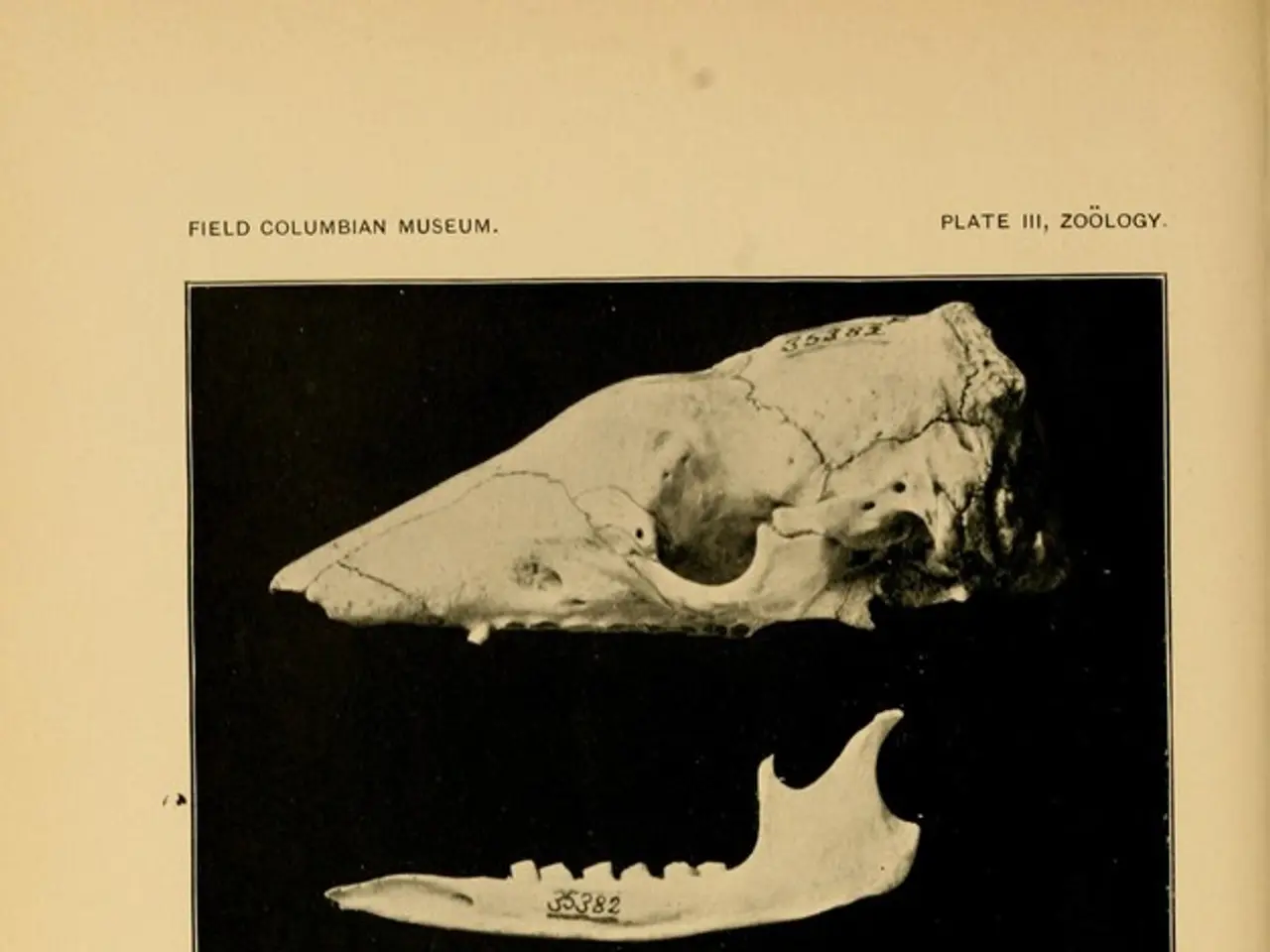Guiding Through the Difficulties of Your Baby's Tooth Emergence
Teething, a significant milestone in a baby's life, can be a challenging period for both parent and child. Here's a guide to help navigate this phase, ensuring a comfortable and healthy experience for your little one.
Understanding Teething
Teething usually begins around six months of age, although variations exist. The lower central incisors are typically the first to emerge, followed by the upper central incisors. Teething can disrupt sleep routines due to discomfort and pain, and it may cause changes in sleep patterns, with some babies experiencing more restlessness.
Recognizing Signs of Teething
Recognizing signs of teething requires keen observation of a baby's behavior. Common symptoms include excessive drooling, swollen gums, and an increased desire to chew on objects. Teething babies may become fussier during feeding due to the pain in their gums. They might also exhibit an increased interest in rubbing their face or demonstrating a preference for cold items.
Providing Relief
Offering comfort through cuddling, rocking, or singing lullabies can provide reassurance during this challenging time. A warm bath or a gentle baby massage can be both relaxing and comforting. Managing excessive drooling requires keeping a soft, absorbent cloth handy to gently wipe your baby's chin and neck throughout the day.
Gently massaging a baby's gums with clean fingers can help alleviate some of the discomfort caused by teething. Consider using a cool, but not freezing, teething ring to alleviate gum discomfort.
The best natural remedies for teething relief in babies include chilled objects like cold spoons and washcloths, silicone teething toys, frozen breast milk or fruit purees, gentle gum massages, and herbal options such as chamomile and clove.
Maintaining Oral Hygiene
Maintaining good oral hygiene during teething is important to ensure a baby's dental health in the long run. Cleaning a baby's gums before teeth erupt is important to promote a healthy environment for their incoming teeth. Introducing a toothbrush once a baby's teeth start to emerge is crucial. Opt for a soft-bristled toothbrush specifically designed for infants.
Choosing fluoride-free toothpaste for babies is essential, as they tend to swallow toothpaste and ingesting too much fluoride at an early age can lead to dental fluorosis.
Ensuring Proper Nutrition
Teething can affect your baby's appetite as the discomfort makes them less inclined to eat. It's important to ensure a balanced diet with soft, cold foods such as yogurt and pureed fruits. Don't force feed, but encourage small, frequent meals to ensure proper nutrition.
Regularly visiting a pediatric dentist is important to monitor a baby's dental development and address any concerns.
Safety Precautions
Removing items that could pose choking hazards is crucial during the teething phase. Small objects, loose parts, or toys with detachable pieces should be kept out of reach to prevent accidental ingestion or choking. Supervising baby during teething toy use is crucial to prevent any potential mishaps during playtime.
Always supervise babies using natural remedies to ensure safety and consult a pediatrician if symptoms worsen or for herbal use.
[1] Mayo Clinic. (2021). Teething: First Year. [online] Available at: https://www.mayoclinic.org/healthy-lifestyle/infant-and-toddler-health/in-depth/teething/art-20048230
[2] Healthline. (2021). 11 Home Remedies for Teething Pain in Babies. [online] Available at: https://www.healthline.com/health/teething-home-remedies
[3] Parents. (2021). How to Soothe a Teething Baby. [online] Available at: https://www.parents.com/baby/health/symptoms/how-to-soothe-a-teething-baby/
[4] WebMD. (2021). Teething: Symptoms, Causes, and Treatments. [online] Available at: https://www.webmd.com/baby/baby-teething
[5] American Academy of Pediatrics. (2021). Teething. [online] Available at: https://www.healthychildren.org/English/ages-stages/baby/teething-tooth-care/Pages/Teething.aspx
- Teething is a significant milestone for both parent and baby, beginning around six months of age, with the lower central incisors typically being the first teeth to emerge.
- Recognizing signs of teething requires observing changes in a baby's behavior, such as excessive drooling, swollen gums, an increased desire to chew, fussiness during feeding, and an interest in rubbing their face or seeking cold items.
- Providing comfort can help ease the discomfort of teething; methods include cuddling, rocking, singing lullabies, warm baths, gentle baby massages, and using a cool teething ring.
- Maintaining good oral hygiene is important during teething to promote a healthy dental environment; gums should be cleaned before teeth erupt, and a toothbrush should be introduced once teeth start to emerge, using a soft-bristled toothbrush specifically designed for infants.
- Choosing fluoride-free toothpaste is essential for babies, as they tend to swallow toothpaste and ingesting too much fluoride can lead to dental fluorosis.
- Ensuring proper nutrition is crucial when a baby is teething, as discomfort may reduce their appetite; offer soft, cold foods like yogurt and pureed fruits, and encourage small, frequent meals.
- Safety precautions include removing choking hazards, supervising toy use, and consulting a pediatrician regarding herbal remedies to ensure the well-being of the child.
- Regularly visiting a pediatric dentist is important to monitor the baby's dental development, address concerns, and ensure they receive proper education on childcare, health-and-wellness, and family-focused science throughout their growth and development. [Referencing sources: Mayo Clinic, Healthline, Parents, WebMD, American Academy of Pediatrics]




